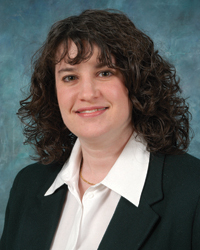 |
Toby Schonfeld, Ph.D. |
A visiting artist drew portraits of patients and caregivers helping students improve their observation skills.
Each month, “Music as Medicine” helps soothe souls of patients, their families and employees.
These are just some of the ongoing humanities projects that could be part of a new Center for Humanities, Ethics and Society (CHES) in the UNMC College of Public Health.
UNMC officials received approval from the University of Nebraska Board of Regents on Friday to create the CHES. It will centralize campus projects involving issues in humanities, ethics and law.
“Bringing art and music projects on campus not only provides holistic care for patients and their families but also enhances the educational experience of our students,” said Toby Schonfeld, Ph.D., associate professor of health care ethics and director of the CHES. “Because of our expertise in health care ethics and ability to respond to emerging issues in health care, the CHES will provide ongoing resources for the community.”
In addition, the CHES will sponsor expanded outreach activities.
“This new center will foster collaboration between health care disciplines at UNMC and between community and faith groups in the metropolitan area,” said Keith Mueller, Ph.D., interim dean of the College of Public Health. “Interprofessionalism is necessary to address and solve heath care ethics dilemmas from a variety of perspectives.”
|
|
The CHES will begin work on programs in six critical areas:
- Clinical ethics and patient care;
- Humanities and the arts;
- Interprofessionalism;
- Research ethics;
- Resilient values and the built environment; and
- Health care reform.
“With much of the country discussing health care reform, the CHES will provide a series of public discussions about national proposals,” Dr. Schonfeld said. “It is an opportunity to serve as a conduit for information, expertise and improved understanding of health care ethics.”
The first of these sessions is scheduled for Jan. 29 from 5 to 6:30 p.m. at the Sorrell Center. The session is free and open to the public.
A study of health care ethics gives students critical tools to evaluate situations, navigate difficult possible solutions and determine appropriate ethical actions.
“Science allows students to plug in a formula and get a correct answer,” Dr. Schonfeld said. “But, ethics is different. There could be multiple answers. We teach students to identify various courses of action, ask necessary questions and offer solutions.”
Ethics extend far beyond patient rooms, Dr. Schonfeld said. Climate change, industrial reform and global consumerism impact our physical world, which in turn influences the health of society.
Dr. Schonfeld said the CHES staff looks forward to engaging community groups about various ethical and legal concerns and increasing public education and information about current local, state and national issues.
No new state funding will be sought to support the CHES. Resources and expenses from existing internal sources will be reallocated to support this program.